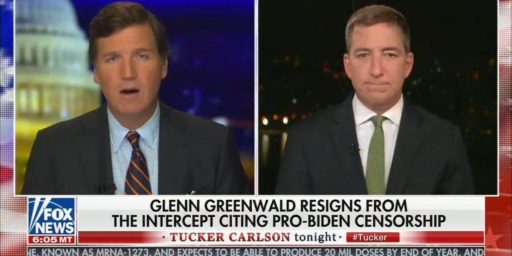Reconciliation and the Public Option
Democratic leaders have claimed that they would have had a government run health insurance alternative (the so-called “Public Option”) if only those mean Republicans weren’t there to filibuster. But Glenn Greenwald believes this was a sham.
But all those claims were put to the test — all those bluffs were called — once the White House decided that it had to use reconciliation to pass a final health care reform bill. That meant that any changes to the Senate bill (which had passed with 60 votes) — including the addition of the public option — would only require 50 votes, which Democrats assured progressives all year long that they had. Great news for the public option, right? Wrong. As soon as it actually became possible to pass it, the 50 votes magically vanished. Senate Democrats (and the White House) were willing to pretend they supported a public option only as long as it was impossible to pass it. Once reconciliation gave them the opportunity they claimed all year long they needed — a “majority rule” system — they began concocting ways to ensure that it lacked 50 votes.
It may well be that there were never 50 votes for public option. Indeed, I tend to agree with Greenwald that there weren’t.
But even the most creative advocates of the reconciliation process don’t argue that it could be used to force a straight majority vote one something that far removed from budget and tax policy. This isn’t eliminating some pork barrel projects needed to get Ben Nelson’s votes or striking language preventing insurance companies from covering abortions but a massive new program.






As with many things in this debate, it all depends on what you mean by “public option.”
The public option supported by progressives couldn’t get a majority of votes in the House, so a “neutered” version was passed. The neutered public option is pretty innocuous as to fears of government take-over (it’s premiums will cost more than it’s private market competitors) and pretty irrelevant to progressive policy goals of government competition.
But I take from the House votes that there is no majority support for a true public option.
Interesting survey over at real clear politics blog. Bottom line is 3/4 GOP insiders think passing healthcare will hurt dems a lot in November, 1/4 think it will hurt a little. 6/7 of dem insiders think passing healthcare will help dems a little or a lot, 1/7 say it will hurt a little or a lot.
When you have such a disconnect between reality between the parties (one side is clearly wrong), nothing that flows from it amazes me.
As to which side is right/wrong, consider the support/oppose polling numbers and especially the strongly support/oppose.
The question is raised by the results of why the GOP doesn’t step aside and let the dems run off the cliff. The answer is simple. Not being seen to do everything to stop the bill would be seen as advocating it.
Greenwald’s argument is very strange. The only people this entire time who claimed there were 50 votes for HCR via reconciliation were at FDL/DKos… and they hypothesized that if we went with only those 50 votes we’d get a public option. Indeed, the fact that Obama/Reid weren’t pushing hard for it was proof that they were sell outs. Now that we that we see that even in a situation where reconciliation is necessary… that 50 votes aren’t there for a public option… this is somehow Obama’s fault? Because Greenwald believed FDL/DKos incorrect understanding of the situation, he wants to attribute their error to some White House conspiracy?
Why can’t he just accept that he didn’t have a very good grasp of the underlying political realities, and that it’s his fault for refusing to listen when “Obots” tried to explain it to him?
I think there’s a similar argument to be made about the wheeling and dealing that went on over the last couple of votes in the Senate.
For those who support this plan, they think this will be a free lunch,but as my dad would say, if you want to dance you have to pay the fiddler.